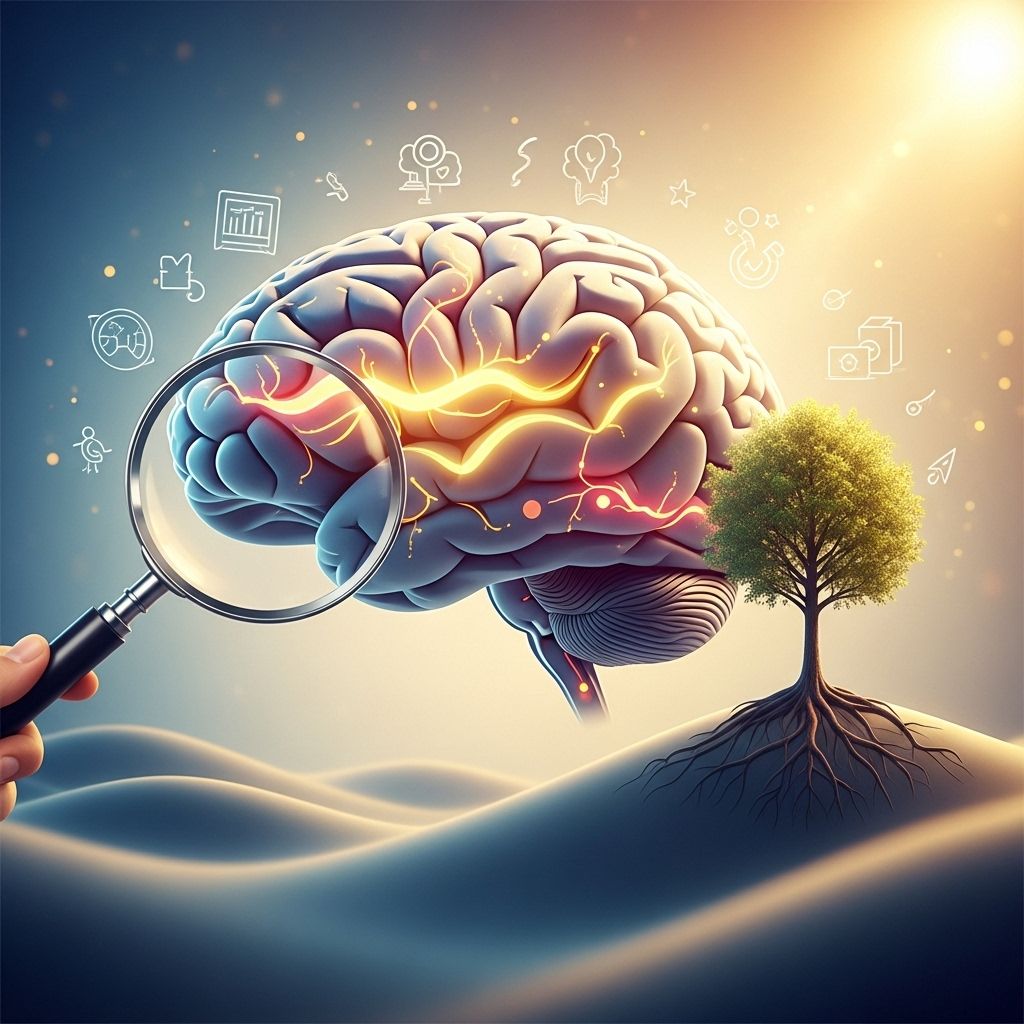Empowering ADHD Management: The Power of Focus-Driven Affirmations
Personalizing inner dialogue can transform daily struggles into renewed confidence.

Living with ADHD can be challenging, but there are tools that help manage its symptoms and improve focus. One of these tools is affirmations, which have been shown to positively impact self-perception and motivation. In this article, we delve into how affirmations can be effectively used for ADHD management, focusing on their psychological benefits, practical applications, and the science behind their effectiveness.
Introduction to Affirmations for ADHD
Affirmations are positive statements that individuals repeat to themselves to encourage a positive mindset and self-compassion. For people with ADHD, affirmations can serve as a powerful tool to cultivate emotional resilience, improve focus, and manage stress. By acknowledging the challenges of ADHD and offering a supportive narrative, affirmations can help individuals cope with the emotional demands associated with the condition.
Why Affirmations Work for ADHD Management
Affirmations can be particularly beneficial for ADHD management due to several reasons:
- Emotional Regulation: Affirmations help individuals with ADHD manage their emotional responses better, reducing stress and anxiety, which are common challenges in ADHD.
- Motivation and Focus: By promoting a positive self-image and encouraging self-motivation, affirmations can enhance focus and productivity, which are often impacted by ADHD.
- Neuroplasticity: The brain’s ability to form new neural connections can be leveraged through affirmations, allowing for the development of new thought patterns and behaviors.
The Science Behind Affirmations
Research in neuroscience supports the effectiveness of affirmations by showing that they activate brain regions associated with self-processing and motivation. This activation can lead to improved self-esteem, reduced stress, and better emotional regulation, all of which are crucial for managing ADHD symptoms.
Practical Applications of Affirmations for ADHD
To effectively use affirmations for ADHD management, it’s essential to follow some guidelines:
- Personalization: Create affirmations that resonate with your personal experiences and goals. This ensures that the affirmations feel authentic and impactful.
- Repetition: Consistency is key. Repeat affirmations regularly, especially during times of stress or transition, to make them more effective.
- Emotional Honesty: Avoid generic positive affirmations that feel insincere. Instead, use affirmations that acknowledge challenges and offer support, such as “I am capable of handling this challenge.”
Examples of ADHD-Focused Affirmations
Here are some examples of affirmations tailored for ADHD management:
- I am strong and capable of managing my tasks effectively.
- I acknowledge my difficulties and am working to improve my focus.
- I am kind to myself when I make mistakes, and I learn from them.
Addressing Skepticism and Common Misconceptions
Affirmations can sometimes feel “fluffy” or too simplistic, but they are grounded in the understanding that our inner voice significantly influences our resilience and motivation. When crafted honesty and linked to real experiences, affirmations can be a powerful tool for managing ADHD symptoms without dismissing the challenges involved.
Limitations and Potential Risks of Affirmations
While affirmations can be beneficial, they are not without limitations:
- Overgeneralization: Generic affirmations that don’t resonate with personal experiences can lead to increased self-judgment rather than motivation.
- Consistency: For affirmations to be effective, consistent practice is necessary. This can be challenging for individuals with ADHD who may struggle with consistency.
Frequently Asked Questions (FAQs)
Q: How do affirmations help with ADHD focus?
A: Affirmations can enhance focus by promoting a positive mindset and reducing stress and anxiety, which often distract individuals with ADHD.
Q: What are some common misconceptions about affirmations?
A: A common misconception is that affirmations are about denying reality or forcing positivity. Instead, they should be honest and grounded, acknowledging challenges while offering support.
Q: How do I make affirmations effective for ADHD management?
A: To make affirmations effective, they should be personalized, repeated regularly, and focus on emotional honesty rather than generic positivity.
Conclusion
Affirmations offer a promising approach to managing ADHD symptoms by enhancing focus, improving emotional resilience, and fostering a supportive mindset. By understanding the science behind affirmations and applying them practically, individuals with ADHD can leverage this tool to improve their overall well-being and daily functioning.
References
- https://www.rainetaylor.com/living-with-adult-adhd/adhd-affirmations
- https://thecenterforchilddevelopment.com/kids-affirmations-what-science-really-tells-us/
- https://www.grandrisingbehavioralhealth.com/blog/the-science-behind-positive-affirmations-for-mental-health
- https://www.mentalhealth.com/tools/science-of-affirmations
- https://pubmed.ncbi.nlm.nih.gov/37489284/
- https://www.psychologytoday.com/us/blog/anxiety-another-name-pain/202001/affirmations-and-neuroplasticity
- https://www.additudemag.com/slideshows/positive-affirmations-for-success-with-adhd/
- https://drblied.com/2022/09/08/the-psychology-of-affirmations/
- https://www.psychologytoday.com/us/blog/the-big-reframe/202304/when-positive-affirmations-do-more-harm-than-good
Read full bio of Sneha Tete












